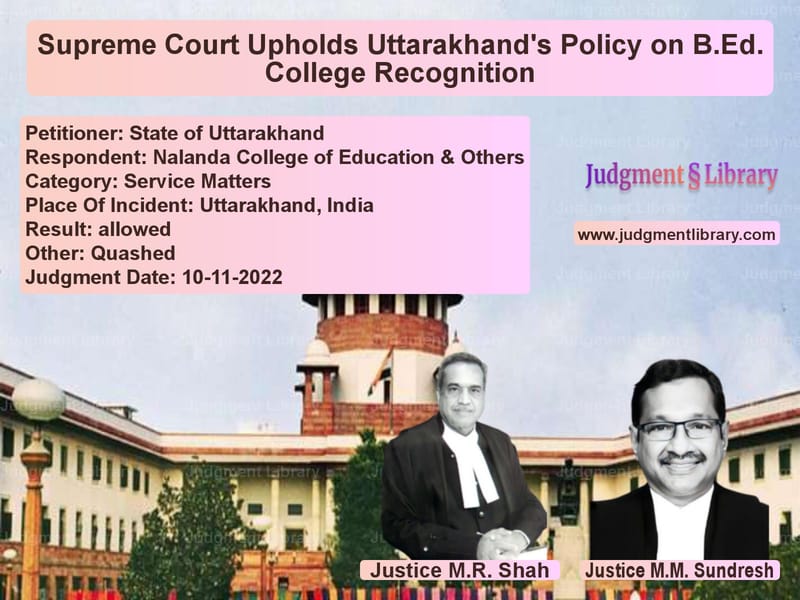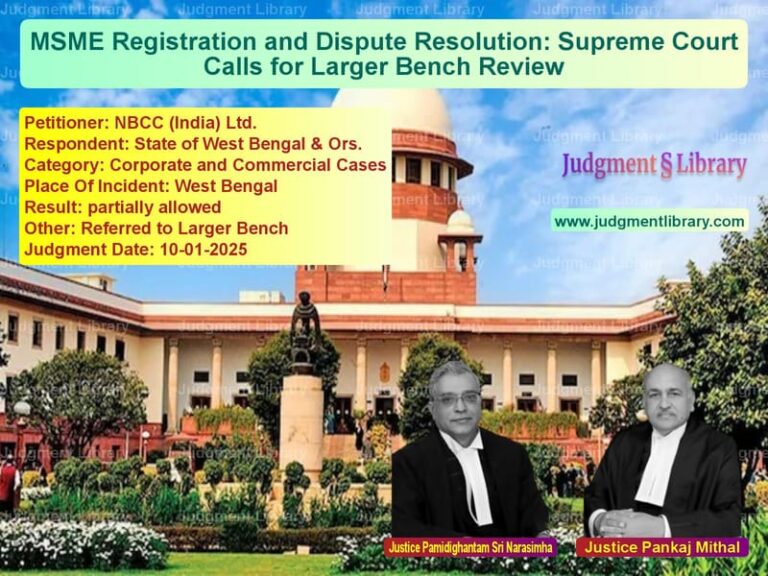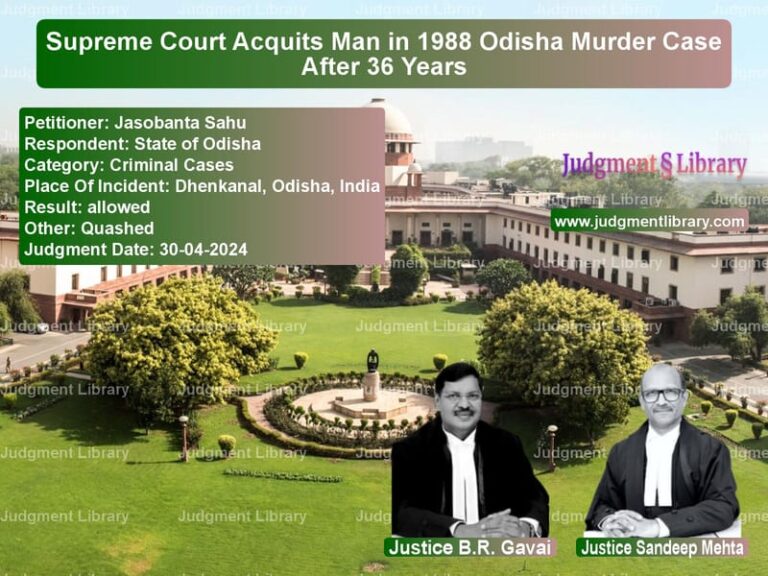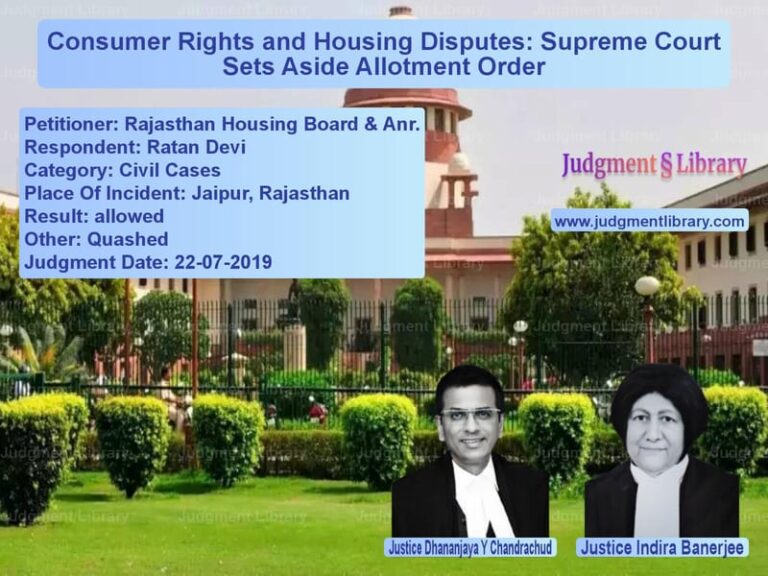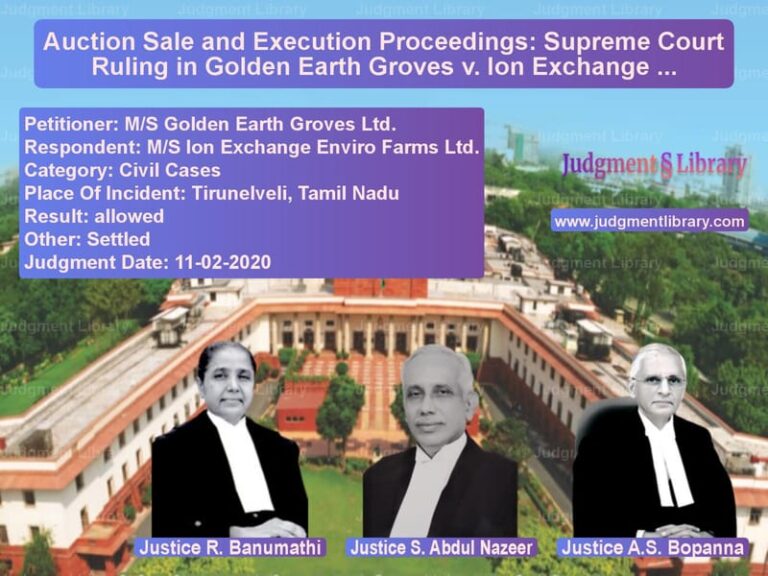Supreme Court Upholds Uttarakhand’s Policy on B.Ed. College Recognition
The Supreme Court of India recently delivered a crucial judgment in the case of State of Uttarakhand vs. Nalanda College of Education & Others. The case revolved around the state government’s decision to deny recognition to new B.Ed. colleges due to concerns about the excess supply of trained teachers and potential unemployment. The ruling overturned the Uttarakhand High Court’s decision, which had previously quashed the state government’s policy and directed the National Council for Teacher Education (NCTE) to reconsider applications for increased student intake.
This judgment is significant as it reinforces a state’s authority in regulating educational institutions based on employment prospects and the need for trained professionals.
Background of the Case
The case originated from a policy decision taken by the State of Uttarakhand through an order dated 16.07.2013, wherein the government stated that granting recognition to new B.Ed. colleges was unnecessary since approximately 13,000 students were passing the B.Ed. course annually against a demand for only 2,500 teachers. The government contended that allowing new B.Ed. colleges or increasing student intake would exacerbate unemployment.
Nalanda College of Education, a private institution in Dehradun, challenged this decision in the Uttarakhand High Court. The college had received recognition for offering a one-year B.Ed. course in 2008 and later sought an increase in student intake. When the state government refused, citing oversaturation of B.Ed. graduates, the institution filed a writ petition.
Arguments by the Parties
Petitioner (State of Uttarakhand)
- The state government argued that its decision was a conscious policy choice based on empirical data.
- It cited employment statistics to justify the restriction, emphasizing that an excess supply of teachers would lead to frustration and financial strain on students.
- The government relied on NCTE Regulations, 2014, which mandate state consultation before granting new recognitions.
- It further contended that courts should not interfere in policy decisions unless they are manifestly arbitrary or unconstitutional.
Respondent (Nalanda College of Education)
- The college argued that the state’s decision was arbitrary and unconstitutional, restricting educational opportunities.
- It contended that employment potential should not be a factor in determining recognition for new institutions.
- The High Court’s earlier ruling had emphasized that states should promote education rather than restricting it.
- The respondent maintained that under the NCTE Act, 1993, only NCTE had the authority to regulate teacher education institutions.
Observations by the Supreme Court
The Supreme Court examined the policy rationale and legal framework governing teacher education institutions. Key observations included:
- The NCTE Act does empower the council to regulate teacher education, but states have a legitimate role in determining the need for new institutions.
- Uttarakhand’s policy was based on valid employment data and was therefore not arbitrary.
- The state’s decision was consistent with judicial precedent, including the ruling in Vidharbha Sikshan Vyawasthapak Mahasangh vs. State of Maharashtra, which upheld Maharashtra’s similar policy restricting new teaching institutions.
- The High Court erred in interfering with the policy without considering the state’s justification and statistical backing.
The Court quoted:
“The need for educational institutions must be determined by balancing the right to education with employment prospects, ensuring that students are not misled into obtaining degrees with little job potential.”
Final Verdict
The Supreme Court allowed the appeal and ruled as follows:
- The Uttarakhand High Court’s judgment was quashed, restoring the state government’s policy.
- The decision to deny recognition to new B.Ed. colleges based on employment data was deemed valid and not arbitrary.
- The NCTE was directed to adhere to the state government’s recommendations before approving any new teacher education institutions.
Impact of the Ruling
This ruling sets an important precedent for state governments regulating educational institutions. Key takeaways include:
- State Autonomy: Governments have the right to regulate the number of teacher training institutions based on employment needs.
- Judicial Restraint: Courts should not interfere in policy decisions unless there is clear evidence of arbitrariness.
- Balanced Education Planning: The ruling emphasizes that states must ensure education aligns with job opportunities rather than producing an excess supply of unemployable graduates.
Conclusion
The Supreme Court’s decision reaffirms a state’s right to frame policies that balance education with employability. The judgment ensures that students are not encouraged to pursue degrees that lack job prospects, reinforcing the principle that education planning must align with national and regional employment trends.
This ruling will influence future decisions on educational regulation, particularly concerning professional courses where oversupply can impact employability.
Petitioner Name: State of Uttarakhand.Respondent Name: Nalanda College of Education & Others.Judgment By: Justice M.R. Shah, Justice M.M. Sundresh.Place Of Incident: Uttarakhand, India.Judgment Date: 10-11-2022.
Don’t miss out on the full details! Download the complete judgment in PDF format below and gain valuable insights instantly!
Download Judgment: state-of-uttarakhand-vs-nalanda-college-of-e-supreme-court-of-india-judgment-dated-10-11-2022.pdf
Directly Download Judgment: Directly download this Judgment
See all petitions in Education Related Cases
See all petitions in Public Sector Employees
See all petitions in Recruitment Policies
See all petitions in Judgment by Mukeshkumar Rasikbhai Shah
See all petitions in Judgment by M.M. Sundresh
See all petitions in allowed
See all petitions in Quashed
See all petitions in supreme court of India judgments November 2022
See all petitions in 2022 judgments
See all posts in Service Matters Category
See all allowed petitions in Service Matters Category
See all Dismissed petitions in Service Matters Category
See all partially allowed petitions in Service Matters Category

